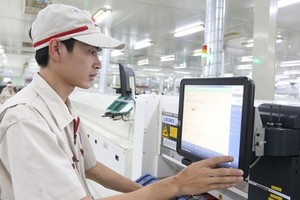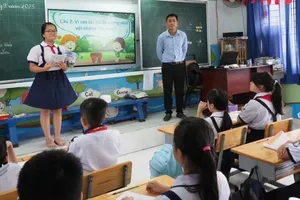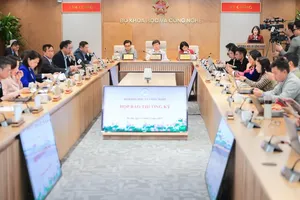The Science for Peace Parliamentary Meeting themed "Water security and insecurity: Rebuilding peaceful coexistence with science" opened on in the central province of Binh Dinh on September 11, attracting 60 scientists and young parliamentarians from 18 countries across the world.
 |
Scientists at the event |
The event, co-organised by the Inter-Parliamentary Union (IPU), the scientific and educational organisation “Rencontres du Vietnam” (Meeting Vietnam), the Ministry of Science and Technology, and the Binh Dinh provincial People’s Committee, aims to provide an academic forum to realise the vision of unifying international affairs through science, towards peaceful coexistence. It also serves as a platform for inter-parliamentary dialogue on topics related to the core objectives of the IPU.
Speaking at the event, Vice Chairman of the National Assembly Nguyen Duc Hai emphasised that water security is one of the major non-traditional security challenges of the world today.
Specifically, about one-third of the world's countries are suffering from water shortages. It is predicted that the rate will increase to two-thirds with about 35 percent of the world's population experiencing serious water shortages, he said.
To ensure water security for over 100 million people and as a developing middle-income country, Vietnam is facing challenges including water shortages, more natural disasters due to climate change impacts, water pollution, and modest access to clean/safe water with affordable prices.
Hai added that in the past time, the Vietnamese National Assembly proactively and actively proposed activities and participated in the IPU's global initiatives relating to water issues. The IPU has supported and coordinated closely with Vietnam to promote parliamentary cooperation in solving global challenges.
During the three-day event, participants will discuss in-depth topics such as science and politics; earth observation programmes to monitor water resources; typical legislative practice; multilateral, regional, and bilateral diplomacy on water resources for cross-border cooperation; a human rights-based approach to water security and peace; innovating water treatment technology to ensure water source security; promoting water security through community science; Network of Parliamentary Alliances on Water Resources; scientific diplomacy and predictive science.
























